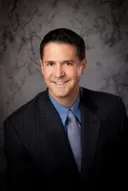Quieting the Chaos - Finding Contentment in Rural Emergency Medicine

Cathy Yeulet/123RF.com
The frenetic pace and chaos of working in an urban trauma center are addicting - at least for a while. Interesting, unusual, and tragic patients test the mettle of even seasoned physicians. For some, the lure is too strong to step away.
For others, the attraction of a quieter life and promise of a more sane existence is too powerful to resist.
My Story
After training in one of the busiest level 1 urban trauma centers, serving as chief resident and working as a flight physician, my first several jobs as a newly minted EM attending were also in urban and suburban emergency departments. I loved the constant challenge and enjoyed being part of a larger team of specialists providing cutting edge care.
As my youth faded and our family grew, the joy of a late night resuscitation or early morning patient save began to lose its luster. While I still love caring for critical patients, I love my family more. The road forked in front of me as my career plowed ahead, and I took the less traveled.
I left an urban area of 3.5 million and embraced life "Up North." I don't actually live in a town or city but rather find myself surrounded by the pristine beauty of nature. My clinical practice went from a multispecialty team sport to one often consisting of a nurse or two and only myself.
The last ten years has been incredible and humbling. The face of rural emergency medicine was vastly different and required a shift in mindset. A few of my former colleagues have joined me for a shift or two, but none found the lack of resources tenable. I discovered just the opposite and want to share a few thoughts and questions.
The camaraderie grows quickly. The team is small and trust, combined with friendship and mutual respect, diffuse tensions and foster cohesive patient care. I have consistently worked with a handful of talented nurses and delivered life-saving care in seemingly un-savable cases. Being able to intuit each other's actions has proven critical on many occasions.
Working in a resource-limited facility forces you to learn several steps beyond what is typically expected in an ED, with vast resources and every specialty available with residents trolling through the hospital looking for the next cool procedure or interesting case.
Weather and ambulances rarely cooperate. I've found myself managing critical cases well through the night and next morning on a 36-hour shift, praying the skies cleared for a flight or the roads opened for even a BLS ambulance to get through. You do your best, rely on training and education and provide the care you'd want your family members to receive.
Be prepared to wear many hats. When a hospital has a grand total of ten physicians on staff, you will be given opportunities to shape the landscape of local care and asked to step up to do more than you are be comfortable doing. Embrace this as a chance for exploration and growth. Also, accept that you are human and saying no or stepping down is essential for the preservation of your family life and health.
You will be rewarded with knowing the intimate details of your patients' lives. Many patients will become familiar friends and consider you their doctor, no matter how many times you encourage them to pick a primary care provider. You will help them through illness and comfort them when death comes calling. The anonymous face of urban trauma will be washed away, and you need to learn how to cope when caring for those who play on your softball team or gather at your house for weekend fun. It will be horrific at times, but you will be relied upon and lauded for your caring and skills. The rewards of working in a rural environment will last a lifetime.
This choice has made all the difference in my life from a personal and professional viewpoint, and I wouldn't change it for anything.
HospitalRecruiting.com has a large number of emergency medicine job opportunities; including rural, suburban, and metropolitan options. Take a few minutes to browse these positions by visiting this link: www.hospitalrecruiting.com/jobs/Emergency-Medicine-Jobs/.
Related Posts
